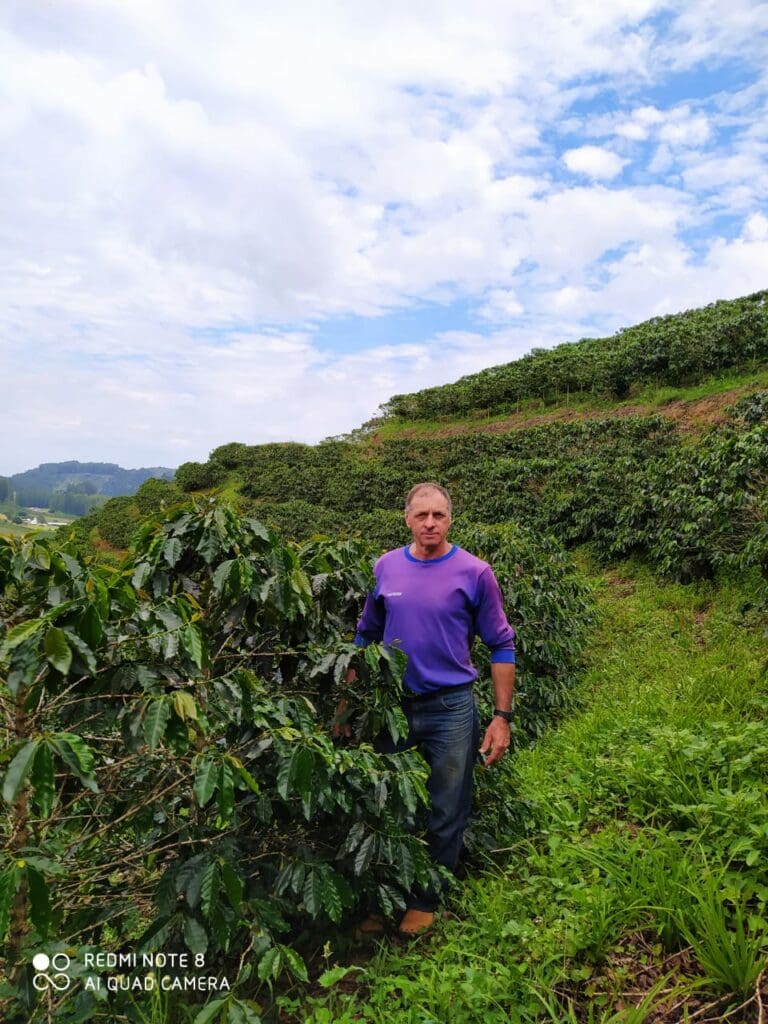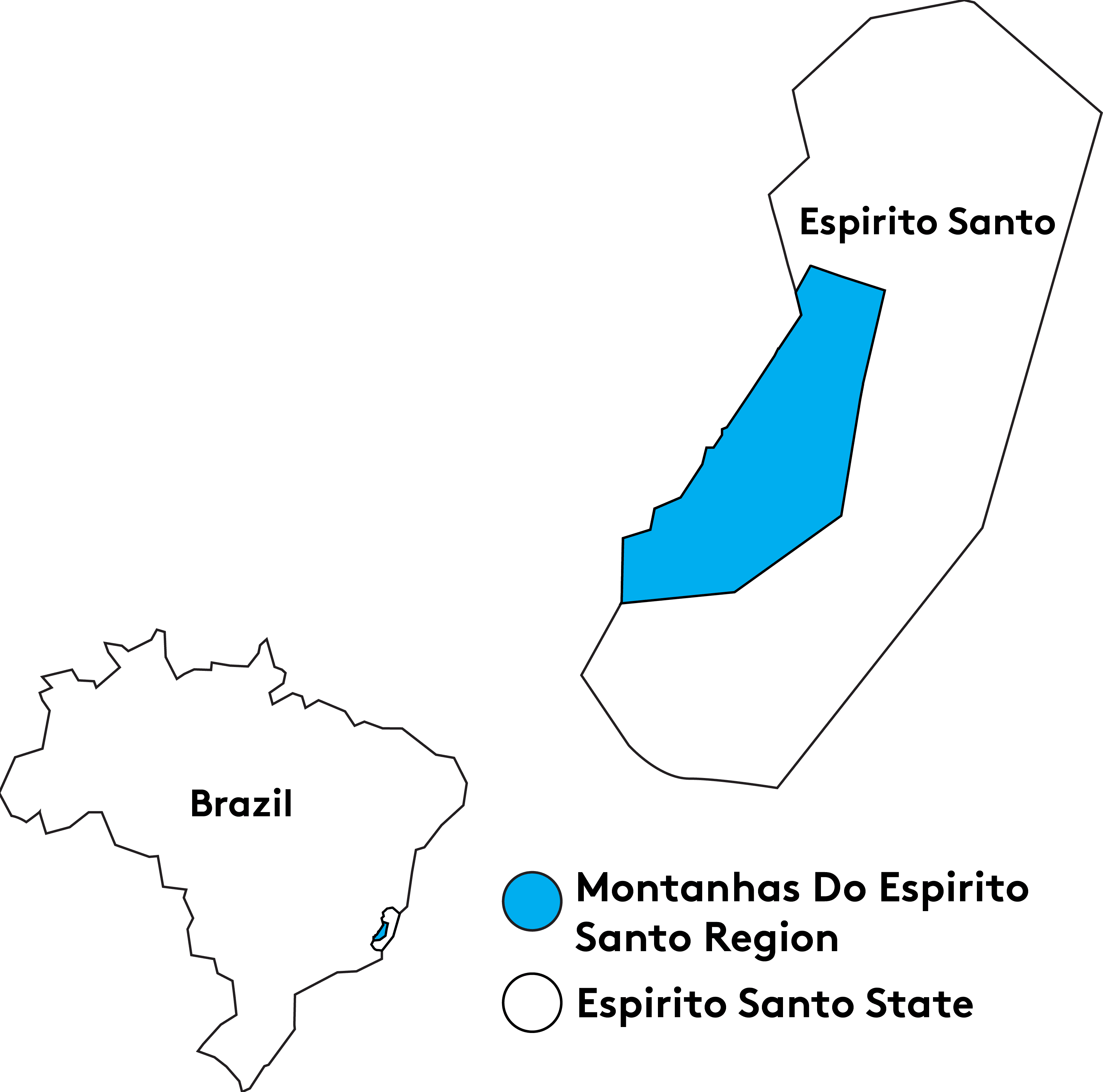Edson Pires Sartori was born and raised on Sítio Bateia in the municipality of Castelo in the mountains of Capixabas in the south of Espírito Santo state. The property was owned by his father, José Sartori, and Edson grew up working in the fields here with his father. He received the property from his father as an inheritance, and continued on in coffee production here.
In the year 2000, a project was launched to improve the quality of coffee in the mountains of Espírito Santo. Edson joined the project shortly after its launch and began working in a more sustainable way. The project also helped him improve his techniques from year to year, including improvements in harvest and post-harvest procedures.
Edson moved away from the property with his family eventually, leaving Sítio Bateia under the leadership of his partner and friend José Fernando Fortunato. In 2016, nine years after he moved, he returned to coffee production at the farm. Today, the farm is a partnership between three producers—José Fernando Fortunato, Ederval Sartori, and Edson Pires Sartori—who work together to cultivate the coffee here. After harvest, the coffee is divided between the three for post-harvest processing and sold by the producers as individuals.
The three partners have continued developing their production processes for many years now at the farm. They adhere to selective harvest of only ripe cherries, and Edson dries his coffees on suspended beds in a greenhouse for a total of 12–15 days. Together they all share a vision of quality and sustainability in their production, seeking continuous improvement in their harvest and post-harvest processes.
This lot of Red Catuai coffee underwent Pulped Natural processing. Catuai was developed by the Instituto Agronomico (IAC) of Sao Paulo State in Campinas, Brazil by crossing Mundo Novo and Caturra varieties. Catuai coffees are cultivated widely across Brazil, and are known for their high productivity potential.

